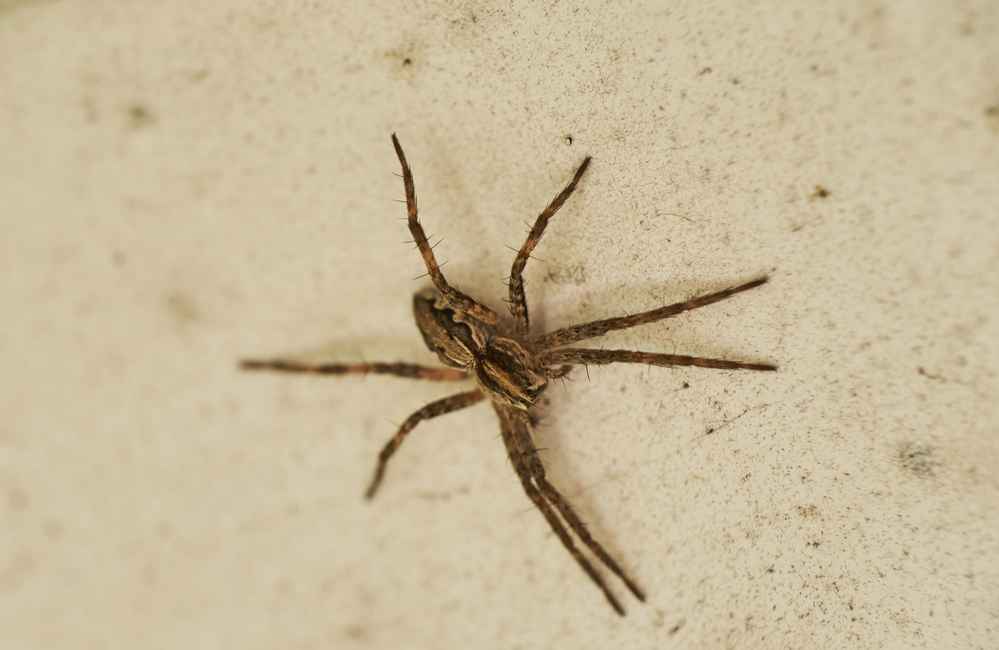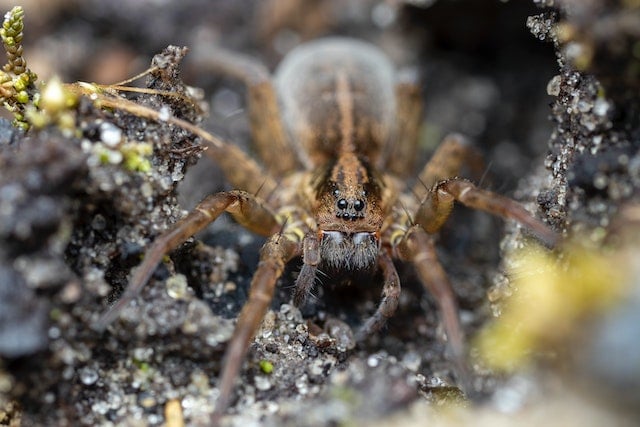If you are one of those people who react to spiders like they are Satan’s spawn coming to eat you, then we have bad news. More and more people are reporting sightings of false wolf spiders in the Netherlands.
What does this mean? According to experts, we might just have to — pauses to shiver — get used to them.
“They are going to spread even more evenly across the country; it can become as common as the cross spider,” spider expert, Peter van Helsdingen, tells RTL Nieuws.
Growing number of legs
The number of venomous false wolf spiders, also known as zoropsidae, has increased tenfold in the last five years. So if you didn’t find the perfect crisis to freak out about yet in 2022, this can be the one!

The first false wolf spider was reported in 2007 in a supermarket.
“It was one among the vegetables in a supermarket. It is a spider species from southern Europe that has been supplied via transports and can now survive well here,” biologist, Jinze Noordijk, explains to RTL Nieuws.
They are here to stay
If you think they are only here to visit the Netherlands to check out some windmills, you are wrong. Because of climate change, now they are perfectly happy in the land of tulips.
“They don’t freeze to death in the winter. If it’s freezing here, that’s only for a short period,” says Van Helsdingen.
That’s it? Are we all going to be eaten?
No. This is not the end of humankind (yet.) While by Dutch standards, the false wolf spiders have big size (with the headpiece and abdomen together, they are an inch or two), they won’t eat your family (and the whole neighbourhood) for dinner.
“They are real insect eaters: crickets, locusts, woodlice,” says Spider expert Lars Vermeeren of animal park De Oliemeulen in Tilburg.
READ MORE: Bad news folks: the number of false wolf spiders in the NL has increased tenfold
If you see one and you have enough presence of mind to do something, you can report it on waarneming.nl.
Would it solve your problem? No. But you can be together with another 1,060 people who already had the same experience as you this year. Last year there were significantly fewer, only 331 reports.
That being said, some people appear to be ‘crying wolf,’ so to speak.
“We have recently received dozens of phone calls from people who say: help, there is a wolf spider in my house. Then we ask them to send a photo, and in half of the cases, it turns out to be an ordinary house spider. That’s mainly because there’s a lot of attention for it now,” says Vermeeren.
So they will murder us with a poison bite, right?
No. They are no more dangerous than a wasp, and (unlike wasps) their biggest goal in life is not to inflict pain on us.
“Spiders are not aggressive, but defensive,” Lars Vermeeren says to RTL Nieuws.
“They prefer to leave us. Only if they can’t go anywhere, they might bite you. Their teeth are small but just big enough to get through human skin. You don’t feel much of the bite itself. And the poison is not very strong, similar to a wasp sting.”
What’s your relationship with these eight legs friends? Tell us in the comments!

I feel bad for you in the Netherlands especially if you haven’t had them . I suppose a regular visit from a pest control company or diy take down . Maybe came in on freight or fruits that come in from other countries and vegetables .